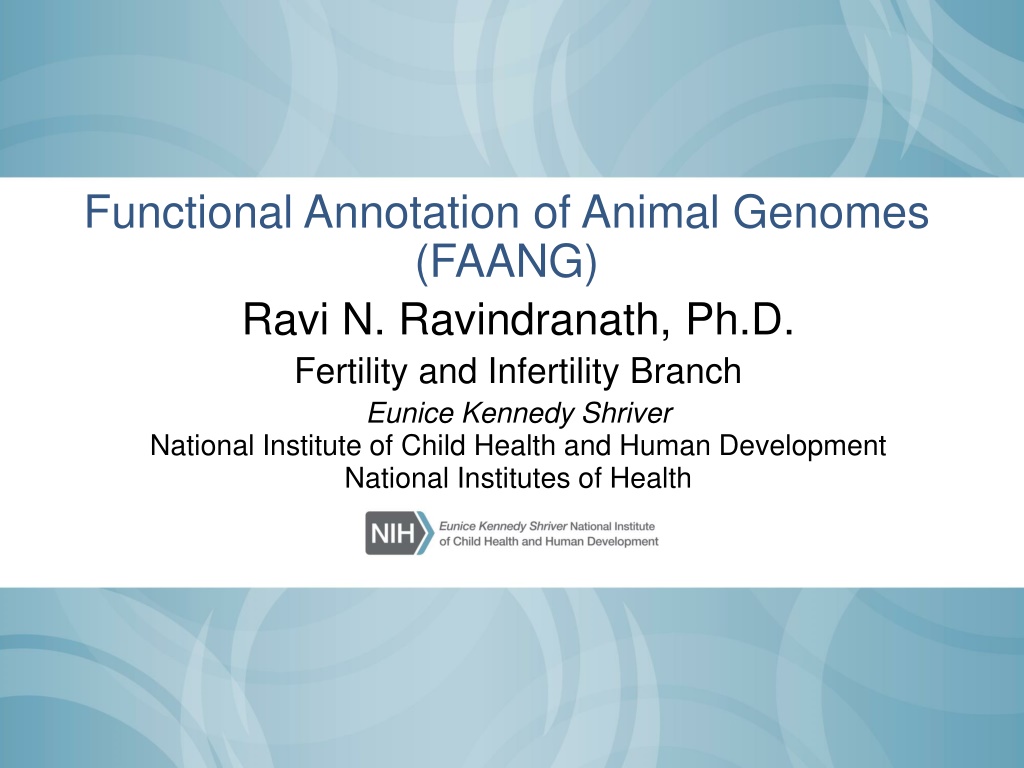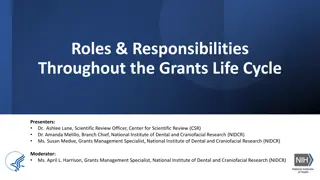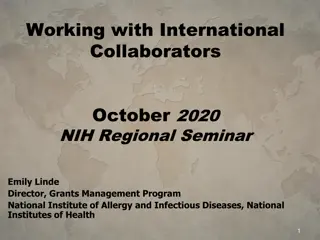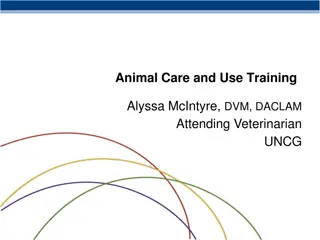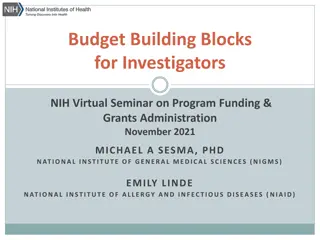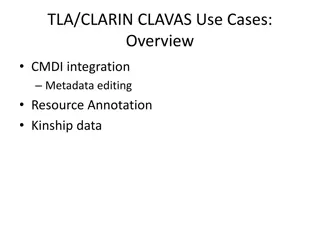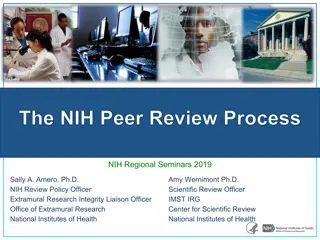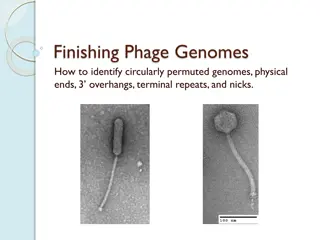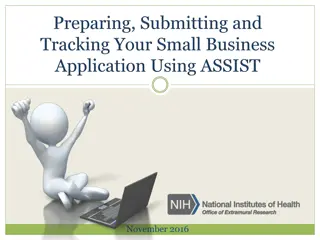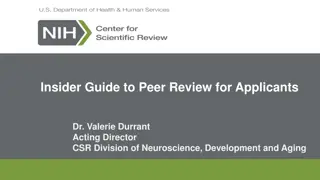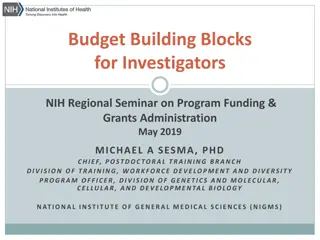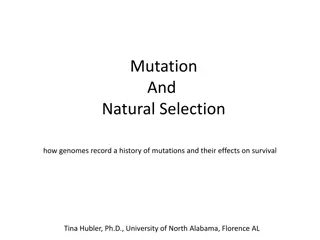Importance of Functional Annotation of Animal Genomes in NIH Research
Functional Annotation of Animal Genomes (FAANG) is crucial for associating sequence variation with quantitative phenotypes in domestic animals, serving as important models for human health, disease, and ecology. The NIH actively participates in various genome projects involving cattle, horses, and chickens, emphasizing the significance of understanding animal biology for human health research. Through genome annotation, researchers can elucidate the genome-to-phenome correlation and provide easy data access to investigators, supporting advancements in physiology, nutrition, immunology, infectious diseases, and more.
Download Presentation

Please find below an Image/Link to download the presentation.
The content on the website is provided AS IS for your information and personal use only. It may not be sold, licensed, or shared on other websites without obtaining consent from the author. Download presentation by click this link. If you encounter any issues during the download, it is possible that the publisher has removed the file from their server.
E N D
Presentation Transcript
Functional Annotation of Animal Genomes (FAANG) Ravi N. Ravindranath, Ph.D. Fertility and Infertility Branch Eunice Kennedy Shriver National Institute of Child Health and Human Development National Institutes of Health
Is FAANG important for NIH? Associating sequence variation with quantitative phenotypes has been done in domestic animals for a few decades because of the importance of animals : As food sources Models for human health/disease Ecology
Exploring Horizons for Domestic Animal Genomics Meeting was held at NAS in 2002 NIH perspective at the Meeting: Sequencing is essential for basic scientific understanding Sequencing is essential for human health and medical research Reasons: Understanding of human biology or physiology is based on domestic animal biology: Chicken embryology Several methods developed in animals: IVF/Cloning Disease models: Influenza
NIH Participation Cattle Genome Project (Baylor College of Medicine), NHGRI Horse Genome Project (MIT), NHGRI Chicken Genome Project (Washington University), NHGRI Although there is no direct involvement with Swine Genome Project, NIH has always been interested in Swine as a model for growth, development, and disease since the pattern of growth and development of pigs is more similar to human. Several individual projects have been funded by NIH over the years.
Models for Basic and Applied studies Physiology Nutrition Pregnancy and fetal growth Immunology Organ transplantation Infectious diseases *Much less used as genetic models
From Genomes What is critically important: Functional Annotation of these genomes is necessary for knowing what is conserved and what is not Genome to phenome correlation Easy access of data to the investigators
NIH-USDA Partnership: Research in Biomedicine and Agriculture Using Agriculturally Important Domestic Species (PAR13-204)
Priority Areas Assisted Reproduction Technologies/Stem Cell Biology: Oocyte Biology; Embyro Competence and Viability; SCNT; iPSC; Transgenesis; Male Germline Development Metabolism: Obesity Developmental Origin of Adult Diseases: In- Utero Developmental Programming Infectious Diseases and Applied Immunology
Projects of Relevance to FAANG Objectives 1. Pablo Ross, University of California, Davis; Epigenetic Control of Preimplantation Development (R01HD070044) 2. R. Michael Roberts, University of Missouri-Columbia; Induced Pluripotent Stem Cells from Swine: Application to Genetic Modification (R01HD069979) 3. Thomas Spencer, Washington State University, Pullman; Systems Biology Approach to understand Endometrial Receptivity and Pregnancy (R01HD072898) 4. Randall Prather, University of Missouri, Columbia, MO. Modification of SCNT donor cell metabolism to mimic blastomere metabolism (R01HD080636) 5. Bhanu Prakash Telugu, University of Maryland, College Park, MD. Generation of zoonotic influenza resistant recominant pigs via site-directed technology (USDA)
Questions? ravindrn@mail.nih.gov 301-435-6889
